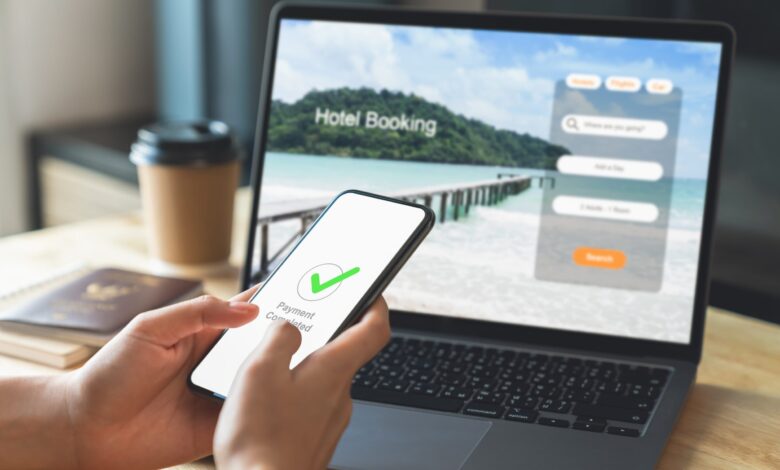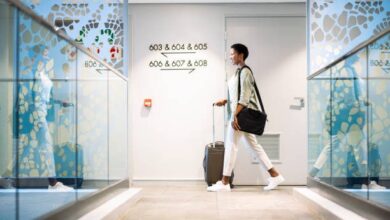Effective strategies to advertise and promote your hotel
Hotel Owner reveals a number of ways to advertise and promote your hotel

In the competitive arena that is the UK hospitality industry, effective advertising and promotion are important to attract guests and ensure business growth. As advertising has become increasingly digital it has both made it easier for hotels to build awareness whilst also making it more difficult to reach people in a way that connects.
Finding your niche
Before starting an advertising campaign, it is crucial to understand your target market. There are a number of different types of hotel guest and targeting certain types of them can help you maximise your reach. Each type of guest has unique preferences and behaviours and therefore you must tailor your advertising and promotion towards that. Conducting market research will help you tailor your marketing messages to resonate with your ideal guests. Developing detailed guest personas allows you to understand their needs, preferences, and booking behaviours, enabling targeted and effective communication.
Taking advantage of socials
Social media platforms are powerful tools for engaging with potential guests and promoting your hotel. An active and well-managed social media presence can significantly enhance your brand’s visibility and reputation. Focusing on platforms where your target audience is most active, such as Facebook, Instagram, and Twitter, is essential. Harking back to the previous point on understanding your market, different types of hotel guests will use different social media. Older guests are more likely to use Facebook whereas younger guests will more likely use Instagram or Tiktok just as one example.
Developing a content strategy is an imperative part of using social media. You should have a mix of promotional posts, guest testimonials, behind-the-scenes content, and local highlights to ensure your content is engaging and does not over advertise. It is possible to show off your hotel and entice people to stay there without explicitly advertising to them. You must also tailor your content to whichever platform it is intended for. What works on Facebook will not work on Twitter. Visual content such as photos and videos can be a good way to show off your hotel.
Engaging with your audience by responding to comments and messages promptly is another important part of using social media. By doing this you are showing you care about your guests and their experiences in a very public way while also addressing a guest personally.
Utilising Online Travel Agencies (OTAs)
Online Travel Agencies (OTAs) like Booking.com, Expedia, and Airbnb are popular platforms where travellers book accommodations. While they charge commissions, they can significantly boost your hotel’s visibility and occupancy rates as they are often the first port of call for anyone looking to book a hotel stay. Therefore, it is important to ensure that your OTA profiles are complete and optimised with high-quality images, detailed descriptions, and up-to-date information about amenities and services is crucial.
Using OTAs to promote special offers, discounts, and packages can attract more bookings, especially during off-peak seasons. While potential guests may start their search on an OTA they may not necessarily book through that agent and many will go directly to your site after finding you on an OTA in search of a better deal. Actively monitoring and responding to reviews on OTAs enhances your reputation, while addressing negative feedback shows your commitment to guest satisfaction.
The power of reviews
Guest reviews are some of the most important things people will use to decide what hotel to stay in. The strength of the reviews can make or break the transaction. A hotel with a number of reviews instantly looks more credible than others, especially if the reviews are mostly positive. Encouraging guests to leave reviews on platforms like TripAdvisor, Google, and Yelp can enhance your hotel’s reputation.
An effective way to encourage people to leave reviews is sending personalised emails requesting feedback after they check out. You could also offer a small incentive for a review such as a discount on their next visit or some kind of free drink or food. The most important thing is making it easy for guests to leave a review as a complicated process will mean many people will give up whatever the incentive. Providing a direct link to somewhere they can leave a review and making the process as painless as possible will hugely impact the promotion of your hotel.
Always responding to reviews, both positive and negative, is very important in making sure that future guests will continue to leave reviews. It also gives reviews more legitimacy as it will appear that you are taking feedback on board, potentially cushioning the blow of a negative review for future potential guests. Thanking guests for their feedback is an easy way to curry favour with people.
Local partnerships and collaborations
Partnering with local businesses and attractions can enhance your hotel’s appeal and improve the experience of your guests. This can be achieved by creating packages that include local tours, dining experiences, or event tickets which can attract more bookings and are beneficial to the entire local community. By working with businesses in your vicinity you will be able to uplift the whole place.








